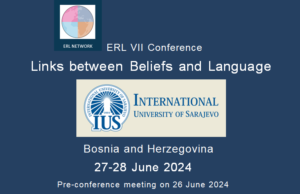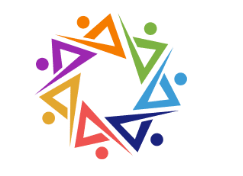How do language and beliefs relate to each other? Does it matter what we think of the language(s) we learn and use?

To discuss these fundamental – but frequently disregarded – issues,
DO JOIN US at the 2024 – LIVE – conference devoted to the AXIOLOGICAL side of language and of linguistic education!
In order for the event to be possibly comprehensive, its scope will range from concepts to sciences. Such broadening of perspective we intend to achieve by orienting the event around four (increasingly wider) modules reflecting 4 major aims:
| Major objective | Module | Exemplary problems |
| to discuss different perspectives on the link between language and beliefs (language OF beliefs, language VS. beliefs, beliefs ABOUT language, beliefs-oriented language, etc.) | CONNECTIONS
|
What is first – language or beliefs?
What beliefs concerning language do teachers and students hold? |
| to address the language-and-beliefs link on the level of (complex) personal identities/structures, educational systems, societies and cultures | SYSTEMS
|
What (personal, cultural, societal) factors determine our beliefs concerning language?
To what extent is the axiological side of language taken into account by different educational systems across the globe? |
| to consider how the axiological component of language determines how we feel ABOUT language (affect), what we do WITH language (actions), and how we understand the world THROUGH language (cognition) | DOMAINS
|
How do our linguistic beliefs relate to our language skills and to our overall linguistic success?
Which views concerning language are profitable and which are detrimental for the teaching and learning of languages? |
| to share how various disciplines contribute to our understanding of the language-and-beliefs link and to embark on interdisciplinary studies not undertaken earlier in the field | DISCIPLINES
|
Which theories address the axioogical dimension of language learning and use?
Which methodologies to apply for studies of the language-and-beliefs link? |
PLENARY TALKS
|
RESEARCH ON BELIEFS ABOUT LANGUAGE LEARNING AND TEACHING: INSIGHTS, CHALLENGES AND POSSIBILITIES Professor Ana Maria Ferreira Barcelos Federal University of Viçosa, Languages Department, Viçosa, Brazil Ana Maria Ferreira (PhD Second Language Teaching; Mgr Applied Linguistics) is full-time professor at the Languages Department, Federal University of Viçosa. She studies aspects of the language teaching and learning process, particularly beliefs and its relationship to emotions and identities; and more recently, pedagogy of love and how it is enacted in class. She is co-editor of books on language learning beliefs and over thirty scientific papers. She is a member of the International Association of Positive Psychology and of the Brazilian Association of Applied Linguistics. She is on the Scientific Board of some journals such as System (Elsevier) PROFILE (in Colombia), as well as the Brazilian Journal of Applied Linguistics, among others in Brazil. Scope of expertise: applied linguistics, language teaching and learning, teacher and learner beliefs about language learning; learner and teacher emotions; relationship between emotions, identities and beliefs; loving pedagogy/pedagogy of love |
|
OMNIPOTENCE OF WORDS IN MAGIC AND RELIGION Professor Žolt Lazar University of Novi Sad, Serbia Zsolt Lazar (PhD Sociology, Mgr Political Sciences) is full-time professor at the Faculty of Philosophy (Department of Sociology), University of Novi Sad. He studies cultural and religious problems and processes (particularly cultural, ethnical and religious identities, multiculturality, youth subcultures, popular culture and art). He is the author of four scientific monographs and over sixty scientific papers, and he edited three scientific books (on Exit festival and regional researches). He is a member of American Anthropological Association (AAA) and Serbian Sociological Society (Srpsko sociološko društvo) and was the Editor-in-Chief (2009-2012) of the scientific journal Sociological Review (Sociološki pregled, Beograd). Since 2023 he is the president of the Serbian Sociological Society. Scope of expertise: sociology of culture and popular culture, sociology of religion and belifes, sociology of art, multiculturality and intercultural communication, regional identities, youth subcultures.
|
If you have any questions, wishes, commens, suggestions, etc., do feel free to write at educationalroleoflanguage@gmail.com



